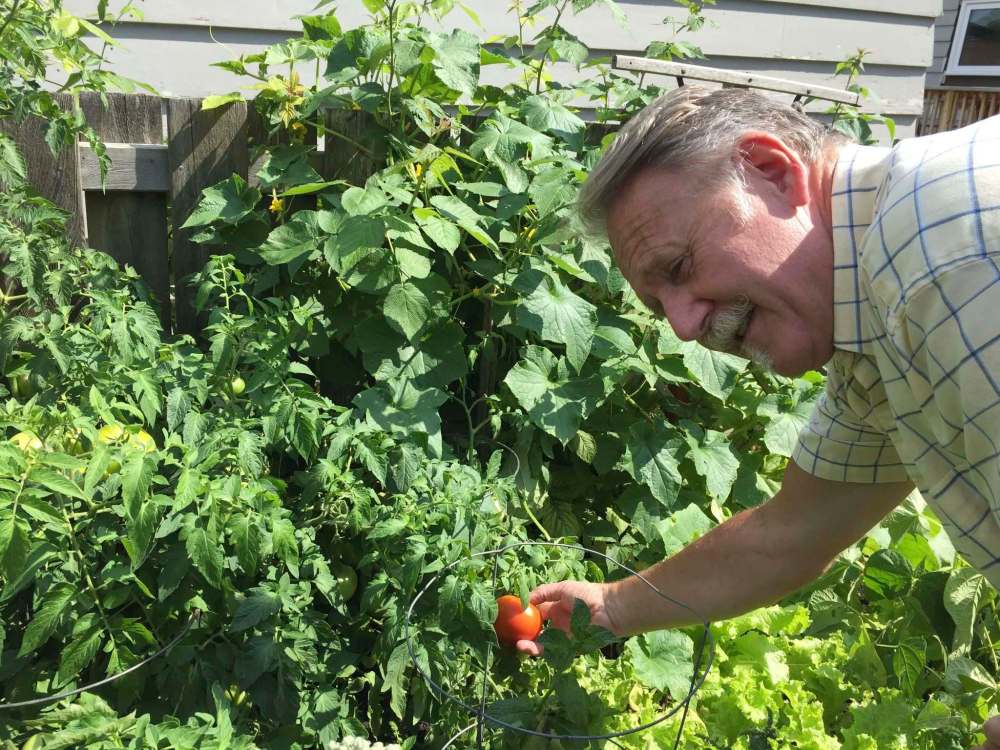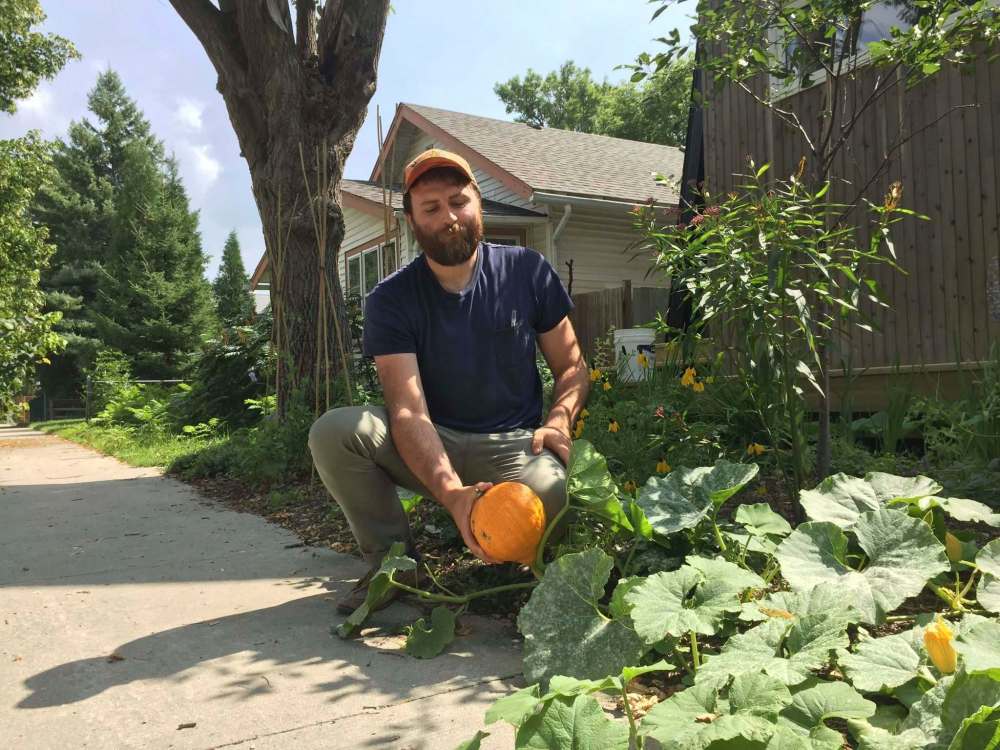Crop of contamination in St. B?
Gardeners warned of high metal levels in soil samples near Mission Industrial Park
Advertisement
Read this article for free:
or
Already have an account? Log in here »
To continue reading, please subscribe:
Monthly Digital Subscription
$0 for the first 4 weeks*
- Enjoy unlimited reading on winnipegfreepress.com
- Read the E-Edition, our digital replica newspaper
- Access News Break, our award-winning app
- Play interactive puzzles
*No charge for 4 weeks then price increases to the regular rate of $19.00 plus GST every four weeks. Offer available to new and qualified returning subscribers only. Cancel any time.
Monthly Digital Subscription
$4.75/week*
- Enjoy unlimited reading on winnipegfreepress.com
- Read the E-Edition, our digital replica newspaper
- Access News Break, our award-winning app
- Play interactive puzzles
*Billed as $19 plus GST every four weeks. Cancel any time.
To continue reading, please subscribe:
Add Free Press access to your Brandon Sun subscription for only an additional
$1 for the first 4 weeks*
*Your next subscription payment will increase by $1.00 and you will be charged $16.99 plus GST for four weeks. After four weeks, your payment will increase to $23.99 plus GST every four weeks.
Read unlimited articles for free today:
or
Already have an account? Log in here »
Hey there, time traveller!
This article was published 18/08/2017 (3042 days ago), so information in it may no longer be current.
For 35 years, Madeleine Vrignon and her husband, Gary Tessier, have grown fruits and vegetables in their South St. Boniface home’s small backyard garden: zucchini, beans, tomatoes, beets and radishes are never far out of reach.
But after University of Manitoba associate professor Shirley Thompson recommended homeowners in several residential pockets near the Mission Industrial Park not eat their own homegrown produce due to high levels of lead, copper and zinc in nearby soil samples, the couple is choosing to leave the crop in their garden, not in their stomachs.
“It’s kind of worrisome,” Vrignon said from her Cherrier Street kitchen Friday. “Do we move after 35 years?… We’d certainly have to consider that.”
Thompson, an expert in industrial hygiene and eco-health, believes the soil-test results indicate a risk to the health and safety of area residents.
While the area has been home to industrial plants since long before Tessier and Vrignon moved in, they say the conditions got considerably worse when Industrial Metals, an auto recycling operation, began doing business in 2015. Since then, they say, the company’s car shredder has produced significant noise, massive dust deposits in the air, and perhaps most noticeably, a thick stench that makes living in the area more difficult than ever before.
On Thursday, Thompson told the Free Press a soil sample taken from a ditch in front of Industrial Metals, located on Messier Street, revealed elevated levels of several potentially toxic elements, including cadmium, arsenic and chromium, which can cause severe health issues. A sample taken from nearby Plinguet Street revealed lead levels more than three times higher than the recommended maximum level for industrial locations. No amount of lead exposure is considered safe.
“We find the allegations leveled against us by the U of M professor to be false, inflammatory and totally irresponsible given that we operate under the stringent guidelines of an environmental licence issued by Manitoba Sustainable Development,” said Dan Chisick, co-owner of Industrial Metals in an email Friday. “We are routinely inspected and tested and work closely with the department on a year-round basis to ensure we are compliant, which we are.”
Thompson said Industrial Metals isn’t necessarily the source of the elevated metals, but the test results suggest the government should carry out independent testing there to ensure there is no breach of the emission standards in the plant’s environmental licence.
“When I heard those numbers, my jaw just about dropped,” said Tessier, who attended a meeting Wednesday with the deputy minister of sustainable development. “It raises immediate concern for what’s taking place in my yard and that my little organic garden — that my wife does most of the work on — is producing stuff that’s not good for me.”
Thompson also said the province’s 2016 air-quality tests failed to check for fine particulate matter, which Tessier agrees can severely hinder residents’ breathing.
That’s a major reason why about 1,700 people have signed a petition for independent testing and increased transparency by nearby industrial plants about the effects of their operations on the air and surrounding environment.

Darlene Thurston, 51, has lived in St. Boniface her entire life, including 43 years in her current Tissot Street home. She used to have two large gardens, but downscaled when the auto recycler opened and she became afflicted by severe bronchitis.
For years, she and her family shrugged off the effects of the nearby industrial complexes. But when her mom died of lung cancer and her own autoimmune system began to fail her, she started questioning what was causing it all.
Since hearing her neighbours share similar concerns with the air and dust, she’s begun to suspect the ailments might have been caused and exacerbated by the industry around her.
“I’m not an expert in these things, but when everyone’s going through the same issues, something’s going on,” she said, her voice pained by what she says is a constantly sore throat.
“I know industry has to happen, but these should be moved out of residential areas.”
Walter Kleinschmidt, a past president of the Old St. Boniface Residents’ Association, said the air quality “absolutely” has him fearing for the health and safety of area homeowners.
He says the Industrial Metals plant is simply the latest in a long line of industrial hazards to affect the area.
“We are of strong opinion that the car-shredding company is in breach of environmental law,” Kleinschmidt said.
He understands there isn’t much that can be done to force the business to move or change its methods of operation, but he’d like to see an extensive secondary plan developed to better define the land’s future uses in a manner compatible with environmental concerns — namely light industry as opposed to the heavy variety currently dominant in the neighbourhood.
Issues such as these are “locking St. Boniface in a time warp,” he said, an ongoing cycle of hazards to residents’ quality of life.
In addition to the smell and dust, Tessier said the shredder’s vibrations can be felt from far away and produce noises that make living nearby hard to bear.
Across the street, Chad Connery and his partner just started their first seasonal garden with new soil after moving in four months ago.
When he heard about the potential damage to area gardens, Connery was concerned.
“It’s unacceptable to be subjecting a residential neighbourhood to these issues,” he said. “We shouldn’t be adding to a problem in our city. It’s insane.”
ben.waldman@freepress.mb.ca


Ben Waldman covers a little bit of everything for the Free Press.
Our newsroom depends on a growing audience of readers to power our journalism. If you are not a paid reader, please consider becoming a subscriber.
Our newsroom depends on its audience of readers to power our journalism. Thank you for your support.
History
Updated on Friday, August 18, 2017 10:45 PM CDT: adds quote from Industrial metals
Updated on Saturday, August 19, 2017 8:48 AM CDT: Related to previous story.




